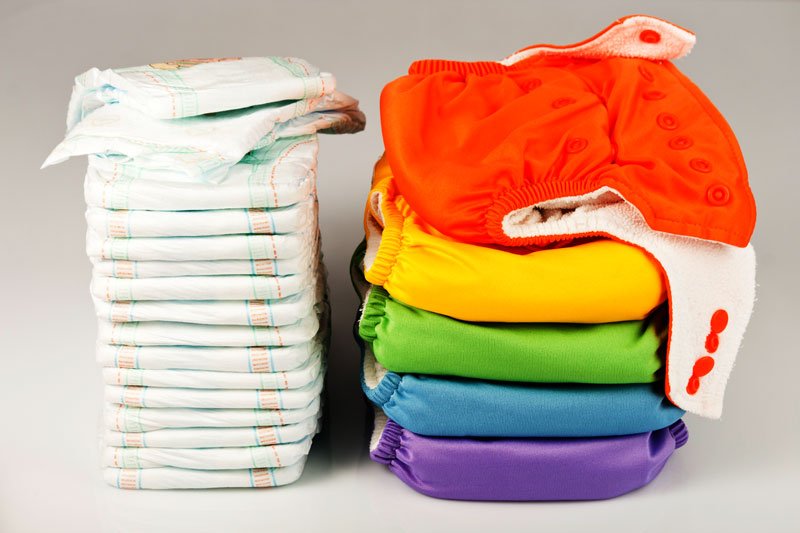What are the health and environmental impacts of disposable nappies?
What are disposable nappies made from? What impacts do they have on the environment and human health? What are the alternatives?
This article includes a combination of unaffiliated reference links, affiliated commission-based links, and advertisements.
In 2022, The European Environmental Bureau reported that 90% of babies are exposed to highly toxic nappies.
The baby product industry funds academic research about its products. Proctor & Gamble provided financial support for a journal article about the ingredients of disposable nappies. Two authors declared they were employees of P&G. They cited references such as a paper about colours in disposable nappies, which P&G also funded.
Amid the health debates, consumers may also worry about the environment. Sustainability Victoria estimates, “…it takes about one cup of crude oil to make each nappy.” The government body also mentions that it may take up to 150 years for a disposable nappy to break down in a landfill.
‘Sustainable’ disposable nappies may look better, but the environmental impact is far from perfect. A CHOICE ‘product expert’ explained, "You would need to separate the biodegradable components from the rest and send them to a commercial composting facility for them to actually biodegrade (and this isn't really possible once the nappy has been soiled)."
If you need to use disposable nappies, the most natural ingredients would have a smaller impact. Tooshies nappies are made from organic bamboo, with no poly plastic binders. They can be composted at home in 60 days. Tooshies set a goal of creating a fully plastic-free nappy product by 2030. Companies are doing what they can. However,
Reusable cloth nappies use the smallest amount of plastics in the long term. They can be used for months or years. Monetary costs are minimal.
Compare the health and environmental implications of reusable and disposable nappies. Image: iStock/Getty, edited.










